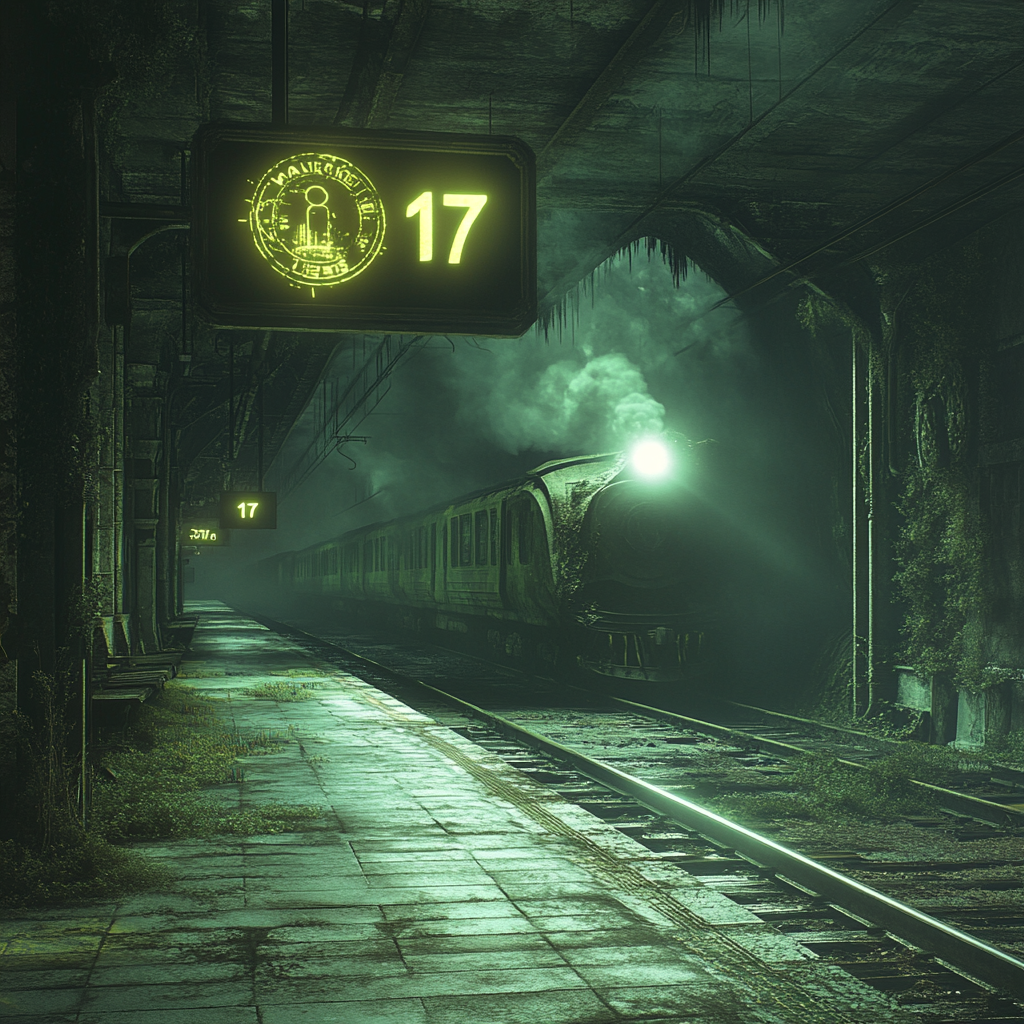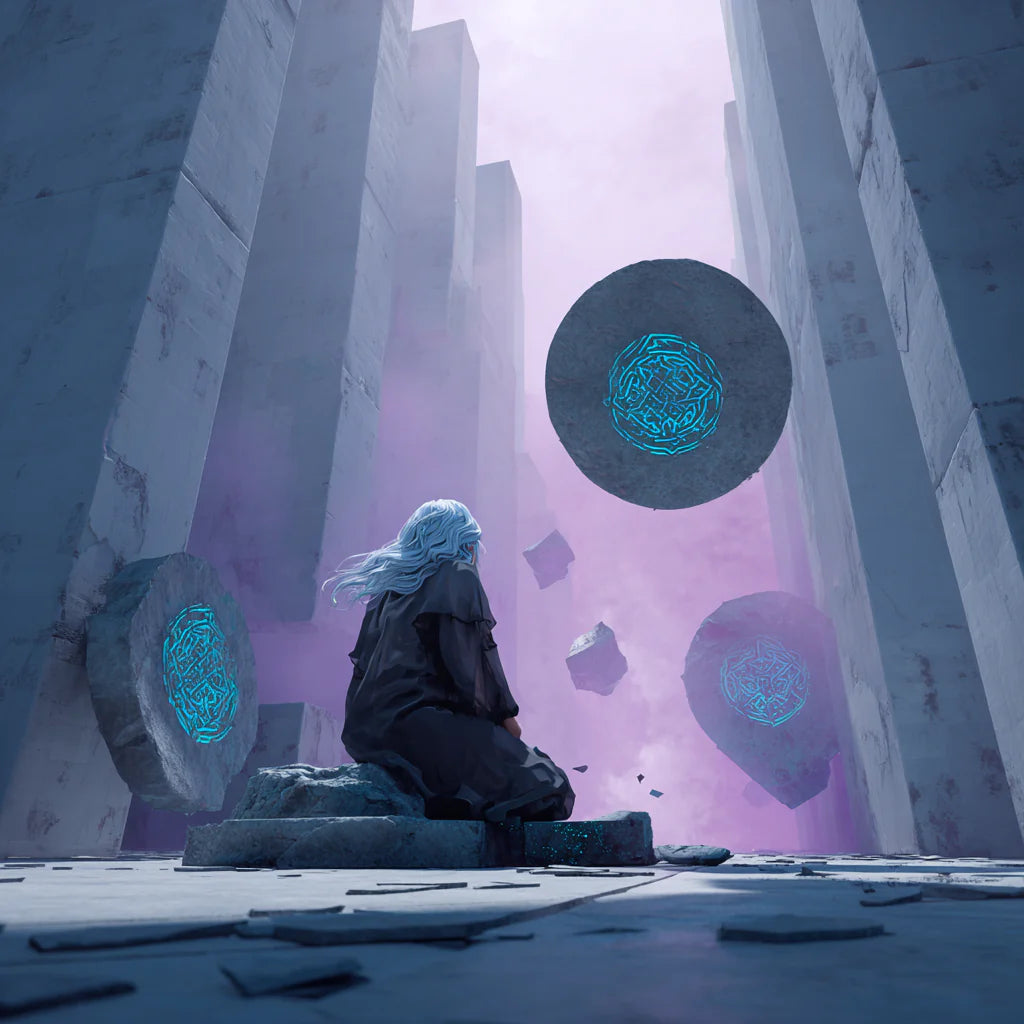With a jerk, the train came to a halt. No one spoke. The doors opened silently, as if controlled by an alien intelligence. The PsychoLab team boarded – ready for the next step on a journey that had long since shown no return.
The interior of the train was carved from a dream: velvet walls covered with pulsating symbols, flickering lights whose colors seemed to adjust to the passengers' heartbeats. Each carriage seemed to house a memory—not necessarily their own.
The shadowy figures that had previously acted as guardians or warnings hadn't dared to board the train. It was as if the train had its own threshold—a boundary that only consciousness was allowed to cross.
Strange memories
Clara sat down next to a window that wasn't one. Instead of a view, it showed scenes: a child crying in an empty classroom. A woman with a metal mask. A city shrouded in fog, with a distorted PsychoLab logo on the wall.
"These aren't random memories," murmured Dr. Stein. "The train is filtering. It wants us to see something."
Julian spotted floating notebooks. As he tried to grab one, it flickered and dissolved. "They're not ours," he said quietly. "But they're... important."
The second goal
In the last carriage was a metal door—without a handle, bearing the symbol of the third key. As they approached, the air shimmered. Voices echoed through the room: "Only those who recognize what is not their memory can pass through."
Finally, it was Julian who found the solution. "This city—it originates from a test field." A click. The door opened, revealing a field of floating fragments: thoughts, memories, concepts.
A new field of consciousness
The world beyond wasn't a place. It was a state. A space beyond reality. Here, PsychoLab no longer existed merely as a team—but as an idea. As a collective echo of experiment, identity, and vision.
"This... is no longer a place. It's a state," whispered Clara.
Another door hovered in the center. Not made of metal, but of memory and data. It would open if the right thought was spoken.
What happens next?
The next threshold is near. The thought that opens the door waits hidden. And PsychoLab, once just an idea, begins to question itself. What is memory—and what is real?



